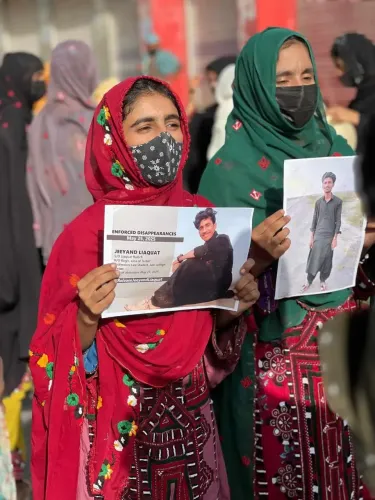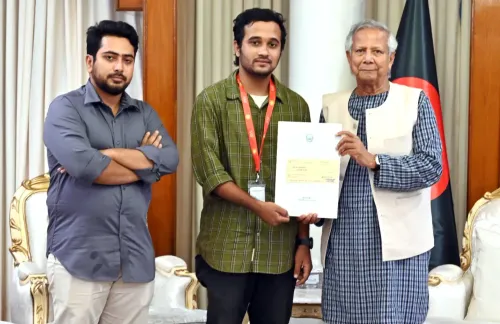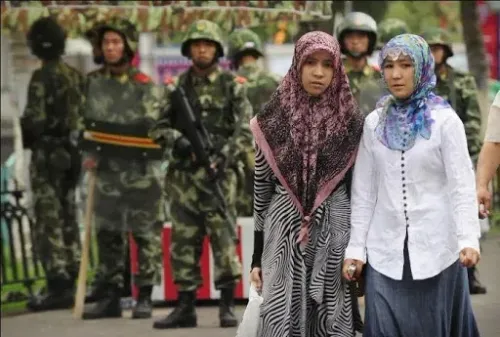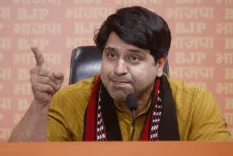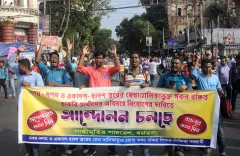Is Bangladesh on the Brink as Yunus Targets Intellectuals and Critics of Radical Islam?
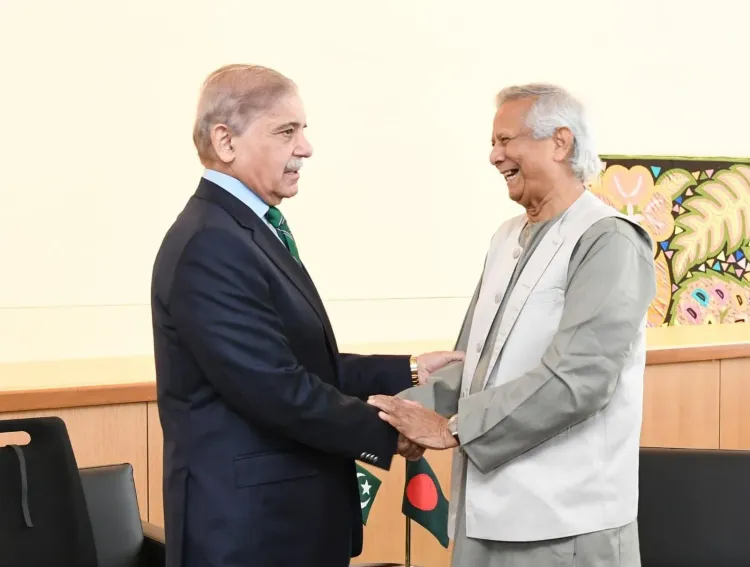
Synopsis
Key Takeaways
- Yunus's regime targets intellectual dissent.
- Professor Barkat advocates for minority rights.
- Concerns over political repression are rising.
- Corruption hampers minority land rights.
- Violence against minorities is increasing.
New Delhi: Muhammad Yunus, the Chief Advisor of Bangladesh's Interim Government, has once again shown his mistrust towards the civil society by arresting the esteemed economist, Professor Abul Barkat, aged 71.
A former Chairman of Janata Bank, Barkat was detained by the Detective Branch of the Dhaka Metropolitan Police on July 10, in relation to a corruption case.
His request for bail was denied as the Bangladesh Anti-Corruption Commission (ACC) argued that Barkat's release could lead to him evading justice or influencing witnesses, thereby jeopardizing the investigation.
Barkat has been one of the few genuine advocates for minority rights in Bangladesh's history. Unlike many who merely discussed minority issues, he provided thorough research that exposed the injustices faced by these communities. Analysts believe this could be the motive behind the actions taken against him.
In his publication titled 'Political Economy of KHAS Land in Bangladesh' released in January 2001, Barkat's research revealed how the Enemy Property Act has been utilized to confiscate properties from the minority Hindu population. Furthermore, his study 'The Political Economy of Agricultural, Land, and Water Reforms in Bangladesh' detailed that over 11.3 million Hindus were compelled to leave the country between 1964 and 2013.
He highlighted that, on average, as many as 230,612 Hindus departed from Bangladesh each year (approximately 632 daily), and if this trend persists, the Hindu community may vanish within the next two decades.
Barkat has been a steadfast critic of radical Islam and the Bangladesh Jamaat-e-Islami (JeI). His arrest is based on a fabricated case lodged with the ACC, which some view as a strategy reminiscent of Pakistan's ISI.
Notably, Barkat's research found varying rates of Hindu emigration during different periods: 1964–1971 (705 per day), 1971–1981 (521 per day), 1981–1991 (438 per day), 1991–2001 (767 per day), and 2001–2012 (674 per day).
Barkat had warned that if the current level of exodus continues, there would be no Hindus left in Bangladesh in the next 30 years.
His Bengali book on the Political Economy of KHAS Lands in Bangladesh - 'Bangladeshe Khasjami-Jala: Daridra-Boishommyo Bemochener Rajnoitik Orthoniti' (The Khas Land in Bangladesh: Political Economy of Inequality and Poverty Alleviation) - published in March this year, is a comprehensive research study on the subject.
This book features contributions from notable economists like Sheikh Ali Ahmed, Faisal M Ahmed, and Muhammad Sazzadul Karim. It discusses that today, approximately 4.5 million people in Bangladesh remain landless, often trapped in poverty and social marginalization. Although the government has initiated land distribution programs, complex legal frameworks and systemic corruption hinder progress.
Currently, the identification and management of Khas Land (Government Land) and water bodies, along with their distribution to the landless and impoverished, retention by these individuals, and relevant regulations within the socio-political context of Bangladesh are crucial issues for agrarian reform. Tragically, 2.6 million acres of land originally owned by the Hindu community have been appropriated by affluent segments of Bangladeshi society, who are part of the power structure.
Yunus is utilizing the ACC to target intellectuals, supporters of the Awami League, religious minorities, and ordinary citizens. These desperate attempts are likened to those made in West Pakistan just before Bangladesh's Liberation War in 1971.
Yunus appears to be doing this to maintain his prominence. He has complete control over the media and continues to engage in political repression by quelling dissent. Yunus has also learned to effectively manage public sentiment.
It is important to note that Barkat has consistently received death threats from extremist groups since 2004 due to his research and writings on the economics of fundamentalism in Bangladesh. Deeply disturbed and outraged, every conscientious citizen of Bangladesh is alarmed that his warrantless arrest is an attempt to facilitate further criminal activities under state custody.
Statistics indicate that 136 murders have occurred in Dhaka alone from January to April this year, with the nationwide count exceeding 1200. In comparison, during the same period, the murder tally in Dhaka was 55 (2021), 54 (2022), 51 (2023), and 47 (2024).
On July 10, the world witnessed the brutal murder of Lal Chand, a local businessman, with the perpetrators not only smashing his body and head with stones but also dancing on his corpse.
Bangladeshis are struggling for survival under Yunus's totalitarian regime - this is certainly not the 'change' the student-led movement envisioned for the common people of the country, who have no past to mourn and no pride to defend.
Barkat has been arrested by the authorities for advocating for minorities and exposing land encroachments and attacks on Hindus by extremists.
In contemporary Bangladesh, the illegitimate, unelected, non-transparent interim administration of Yunus - supported by Pakistani and Chinese intelligence through the JeI - has rendered the defense of human rights a punishable offense.
(The writer is an expert on South Asia and Eurasia. He previously worked with the Manohar Parrikar Institute for Defence Studies and Analyses. The views expressed are personal)

